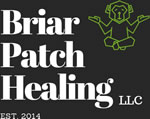Systems Testing and Quality Assurance Techniques
Software Quality Index
The Software Quality Index is an
attempt to relate software development practices to the quality of the final project.
As
additional forms are returned the results will be updated.
Download PDF
version (7K)
Results can be emailed to support@coastaltech.com
Accumulated Results
(as of 07/03/17)
| Sample Size | 244 |
| Low Score | 14 |
| High Score | 89 |
| Median | 45 |
| Mode | 45 |
| Average | 46.3 |
| Average score based upon customer perception of quality: | |||
| Exceeds expectations | 63.0 | High Quality | 61.1 |
| Very satisfied | 60.8 | ||
| Above average | 49.9 | Average | 44.0 |
| Acceptable | 39.8 | ||
| Barely satisfied | 29.1 | Low Quality | 28.2 |
| Low | 25.5 | ||
Average Score by Question
| Program documentation is readily available, up-to-date, and complete. It includes original program specifications (functional specification and design document), unit test plan, system test plan, acceptance test plan, archived test results, and a history of modifications (fixes and enhancements.) | 4.3 |
| Program is easily understood by other programmers without considerable effort. It does not use obscure commands, unusual constructions, and is throughly commented. | 4.8 |
| There is no need to contact the original programmer before attempting to work with the code. Comments contain notes about how and where to make modifications. | 5.2 |
| It is highly likely that if this program’s functionality is required by another system, it will be used. Other developers will know that this program exists and how to incorporate it. | 3.9 |
| The program specification was reviewed by Quality Assurance before programming began. Reviews were conducted whenever warranted by complexity. The written unit test plan was developed and reviewed prior to programming. | 3.2 |
| Programming language is not platform specific. There are no unusual or excessive resource requirements. All data are edited before use. Program contains no cryptic messages. Complexity levels have been measured and are acceptable. | 4.6 |
| Little or nothing is hard coded. Tables and control files are used. Data dictionary used for development. All variable names are included in the dictionary. System limits are known and documented. | 4.8 |
| Test client is used for testing (a program to test the program.) Every line of code has been executed at least once. | 3.9 |
| Integration planning is complete. Program’s expected life is determined and documented. | 4.0 |
| Customers have signed-off on program and they find it usable, flexible, and robust. | 5.9 |




